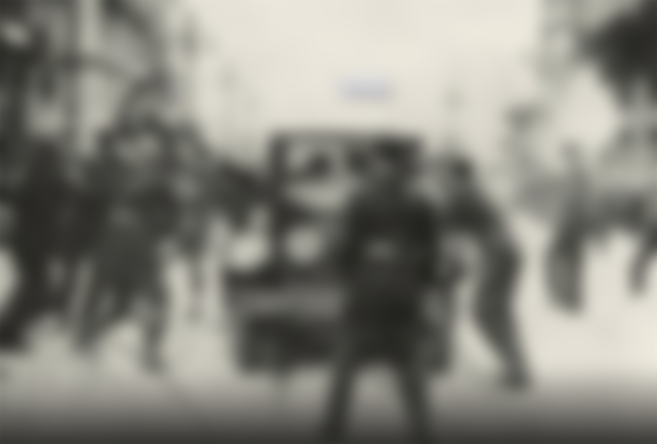Known as the "Unifier" King, Alexander I Karadjordjevic was born in Cetinje as the fourth child (second son) of Peter I Karadjordjevic and Princess Ljubica Petrovic of Montenegro, the eldest daughter of Montenegrin King Nikola I Petrovic.
He was born on this day in 1888. He was the king of the Kingdom of Yugoslavia, and here are the details from his life, which tragically ended with the assassination in Marseille.
His godfather at his baptism was, through an envoy, the Russian Tsar Nikolai II Romanov. Alexander was two years old when his mother, Princess Ljubica, died of complications in childbirth during the birth of his younger brother Andrija, who also died twenty-three days later.
He spent his childhood in Montenegro, and finished elementary school in Geneva.
He continued his education at the military academy in St. Petersburg. While Aleksandar and his younger brother George were at the military academy, their father Petar, together with his conspirators, managed to carry out a coup d'etat in the Kingdom of Serbia known as the May coup in which King Aleksandar Obrenović and his wife Draga were killed.
In that way, the Karadjordjevic dynasty regained the Serbian throne after forty-five years. Alexander's 58-year-old father became King of Serbia Petar I Karadjordjevic, which is why George and Alexander returned to Serbia to continue their studies.
A fateful turning point in the life of Prince Alexander occurred on March 27, 1909, when his older brother, Prince George, renounced his right to the throne after strong pressure from political circles in Serbia. As heir to the throne, Prince Alexander embarked on the reorganization of the army, preparing it for the final showdown with the Ottoman Empire.
A fateful turning point in the life of Prince Alexander occurred on March 27, 1909, when his older brother, Prince George, renounced his right to the throne after strong pressure from political circles in Serbia. As heir to the throne, Prince Alexander approached the reorganization of the army, preparing it for the final showdown with the Ottoman Empire.

Foto: Profimedia
In October of that year, the official name of the country instead of the Kingdom of Serbs, Croats and Slovenes became the Kingdom of Yugoslavia. The basis of the concept of "January 6", that is, the personal government of King Alexander, was the most consistent implementation of the policy of integral Yugoslavia, where no longer separate tendencies were tolerated, or emphasis on any regional, tribal (or national) or religious peculiarities in relation to the whole state or Yugoslav nations.
In 1931, after the situation in the country had largely stabilized, a new Constitution of the Kingdom of Yugoslavia was introduced, which established a bicameral representative system, and the country was thus returned to parliamentarism.
The assassination of King Alexander in Marseille was preceded by two attempts, the first in 1921, in Belgrade, organized by the communists, the assassin was Spasoje Stejić. While the assassination attempt on King Alexander was carried out by members of the Croatian Ustasha movement, on December 17, 1933, in Zagreb. The Ustashas Petar Oreb and Ivan Herničić were later arrested and convicted, as was the communist Stejić.
The assassination on October 9, 1934 in Marseille, in which the head of French diplomacy, a member of the French "Academy of the Immortals" Louis Barthou, was assassinated, was carried out by Croatian Ustasha terrorists and members of the pro-Bulgarian organization VMRO (Internal Macedonian Revolutionary Organization), with Mussolini's undoubted support.
The further background of this crime, as Tanjug wrote earlier, has never been fully clarified, and there are even more contradictory theories.
The immediate perpetrator was a member of the VMRO, Vlado (Veličko) Georgijev Kerin, nicknamed Chernozemski, with the help of three members of the Ustasha movement.
In October 1934, King Alexander Karadjordjevic came to France on an official state visit. About 100,000 people greeted him on the streets of Marseille.
The assassin Chernozemski, pretending his enthusiasm, chanted to the king in French, and then he took out a revolver from the bouquet he was waving and fired several shots.
The mortally wounded King Alexander soon passed away, a few hours later Minister Louis Barthou passed away, while the wounded General Joseph Georges survived. As the press of that time wrote, the last words that King Alexander uttered were: "Save Yugoslavia for me".
The mass lynched the assassin, whom the police had previously managed to wound, and he soon passed away. French police arrested three conspirators-assassins Zvonimir Pospisil, Ivo Rajic and Mijo Kralj, Croatian Ustashas. A French court sentenced them to life in prison.
Benito Mussolini, the Italian fascist leader who had territorial aspirations for parts of Yugoslavia, refused to extradite the instigators of the crimes of the Ustasha champions Ante Pavelic and Eugene Dido Kvaternik, who was the leader of the group that carried out the assassination. For some time, the Italian authorities held them captive.
According to the general assessment, the creator of the Yugoslav state was sincerely mourned throughout Yugoslavia. Hundreds of thousands of people paid tribute to the killed ruler along the entire length of the route, starting from Split, and along the railway routes from Split through Zagreb to Belgrade.
King Alexander was buried on October 18 in the family tomb of Karadjordjevic in Oplenac, with the highest state and military honors, and the presence of representatives of almost all European countries, courts and governments, including war opponents.
Since the eldest son of King Alexander Peter II was a minor, the power was taken over by a three-member governorship, which consisted of Prince Pavle Karadjordjevic, Dr. Ivo Perovic and Dr. Radenko Stankovic.
The governorship was overthrown by a military coup on March 27, 1941, and was soon followed by Nazi Germany's attack on the Kingdom of Yugoslavia. Apart from Germany, Italy, Bulgaria and Hungary also took part in the attack.

Foto: Profimedia
A TATTOO THAT ALMOST NO ONE KNEW
It is interesting that Aleksandar I Karađorđević was a big fan of tattoos, so he had one on his body.
Namely, a large tattoo was made on his chest, which depicts a Prussian one-headed eagle with outstretched wings holding a sword in one hand, a pattern in the other, while a heraldic crown rests on his head.
The fact that the Yugoslav king "Ujedinitelj" was tattooed for decades was completely unknown.
Deacon Nenad Jovanović discovered this fact by collecting material for the book "Coats of arms, flags and anthems in the history of Serbia", in which a photograph of the king's tattoo was published for the first time.
The tattoo depicted a single-headed eagle with wide spread wings, with a sword in one claw and a pattern in the other. Above the eagle was a crown resembling that of the Holy Roman Empire.
Therefore, according to historians, the tattoo was most likely created before the First World War, in the king's younger days, but the possibility that it happened a little later, as part of his wedding to Queen Maria, a Romanian princess from the Hohenzollern-Sigmaringen family, is not ruled out.
source: Serbia Today


How he can hide his tattoo so much time hah.We learned about Aleksandar Karađorđević in primary and high school.This was our history.